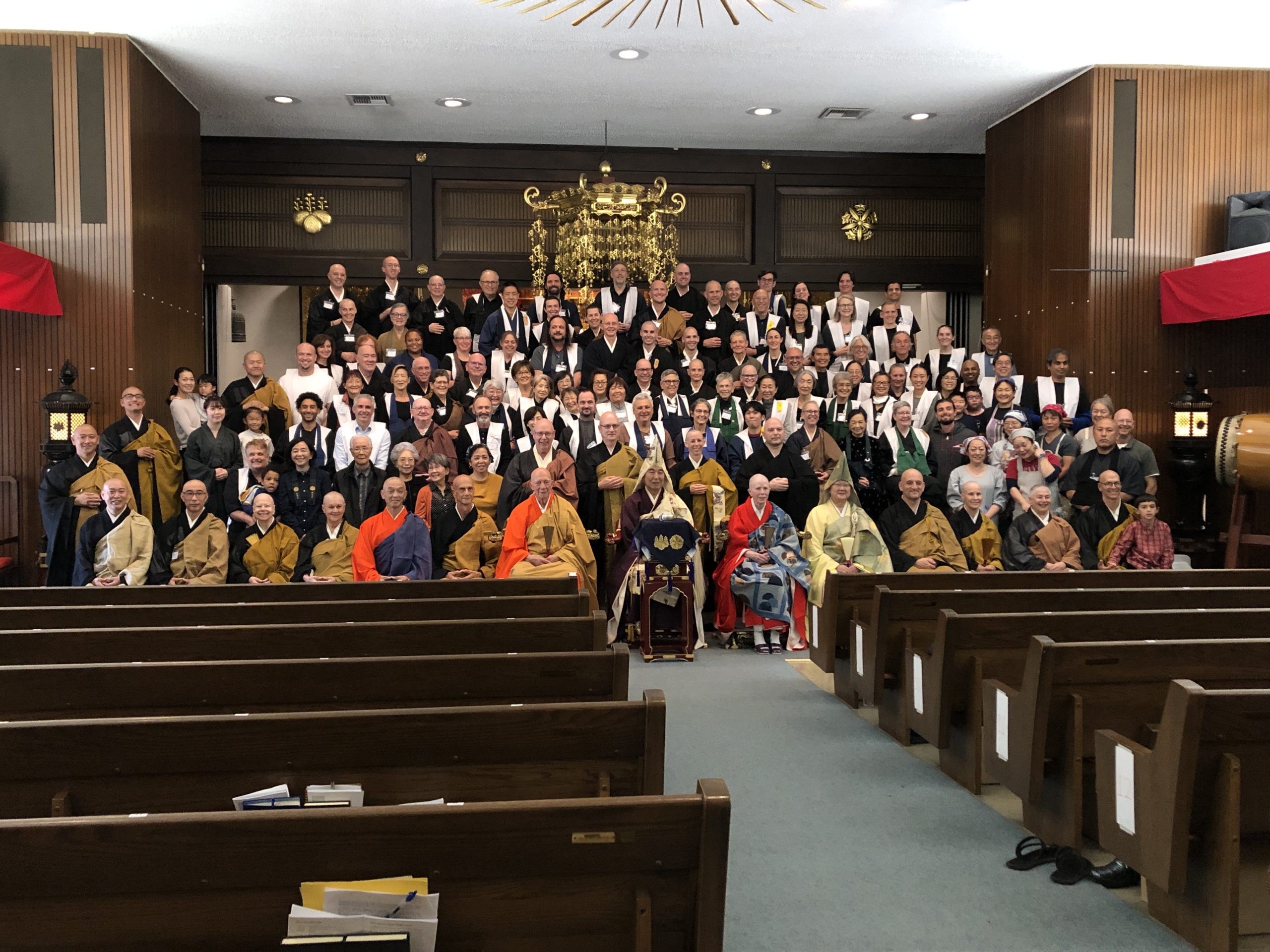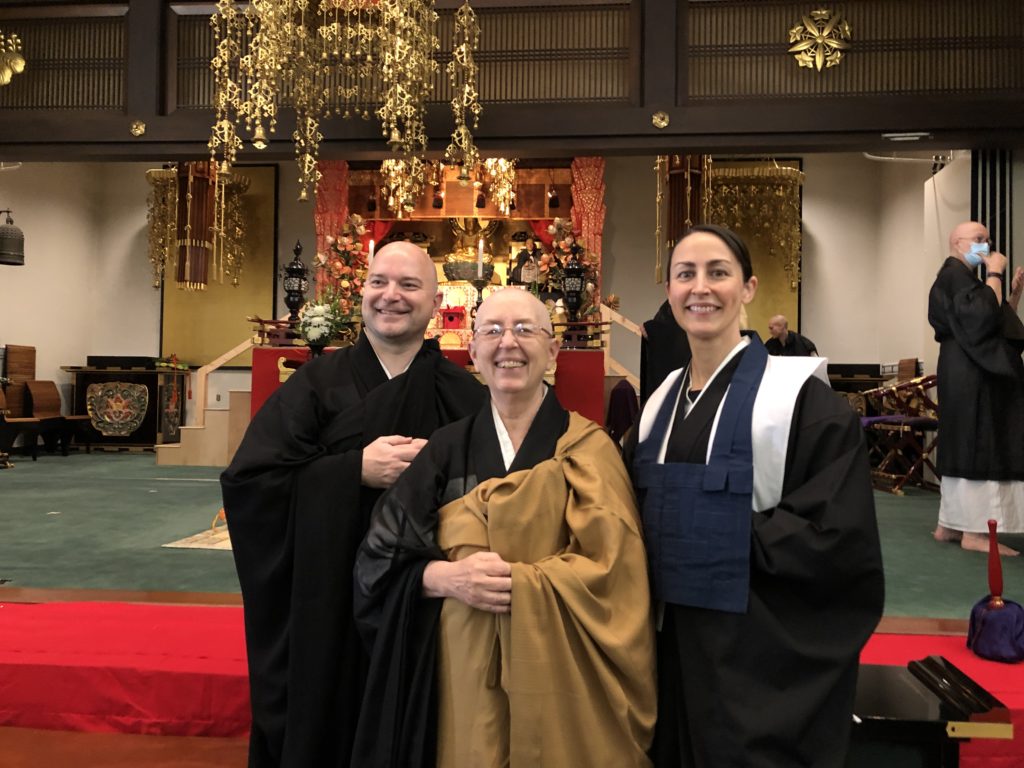
Students and Faculty Participate in Zenshuji’s 100th Anniversary Jukai
Rev. Bansho Green, Naomi Knoble, both students in our Certificate in Soto Zen Studies program, and faculty member Rev. Dr. Daijaku Kinst, participated in a Jukai-e ceremony at Zenshuji temple in Los Angeles from November 16-20. Naomi was one of nearly 100 people from around North America who took the Bodhisattva precepts during the event, and Bansho was the ritual attendant to Rev. Chozen Bays, one of the three main teachers in the ceremeonies. Rev. Dr. Kinst was an officiant.
This was part of the year long celebration of the 100th Anniversary of Soto Zen in North America, which formally began with the founding of Zenshuji.
The Jukai-e was a multi-day event with several ceremonies and dharma talks each day, and is the culmination of several years of planning and rehearsals. It was the first time in 20 years it has been done in North America and the first time it was planned, organized and performed by seventy-five Soto Zen priests from temples and Zen Centers in the North America. Japanese dignitaries teachers and priests joined us as well for and provided support for the last phase of the rehearsals and organizing.
Rev. Dr Kinst reflected:
It was deeply moving to be an officient in ceremonies that honored our ancestors and all who brought Soto Zen to North America, and to support the participants in taking the precepts. In particular it was a pleasure to work together with diverse priests from diverse temples over the last year to help bring this to fruition and to support the kaitei as they walked the path together. There was careful attention to ritual, careful attention to the teachings, and careful attention to each other – many laughs, much friendship and kindness, and the power of the dharma was evident in it all.
Soto Zen Certificate student Naomi Knoble writes the following:
Recently a Jukai-e, a ceremony for a large group of people to receive the Bodhisattva precepts, was held at Zenshuji Soto Mission in Los Angeles in honor of the 100th anniversary of Soto Zen in North America. It was a huge, beautiful, and generous gift unfolding, ceremony after ceremony, over five days from November 16 – 20, 2022. The generosity of this event took many forms: the years of planning, months of rehearsals, and efforts of everyone who came together from around the world. We gathered as Dōgen Zenji’s international Dharma descendants with ordained and lay practitioners from Japan, Argentina, France, and across North America. This international group poignantly illustrated how, with careful nurturing hearts and impressive effort, our Soto Zen practice has been carried across time and geography to us right now.
I am a white 45-year old North American lay practitioner, a convert to Soto Zen in my early 20s. At this Jukai-e I discovered that after 20 years of practice there is vastly more of this Soto Zen practice than I have ever known. For example, for the first time I experienced the sweet singing-with-bells practice of Baika, which was completely new to me but wholly familiar to Japanese and Japanese American practitioners present. I witnessed the impressive athletic monastic performance art that was the accordion-style unveiling of the Prajnaparamita Sutra texts. And I had the privilege of meeting people who are the living legacy of Soto Zen’s arrival in North America, such as Kumi Kawashiri, whose grandfather was a founder of Sokoji temple, and who went with her family as a little girl to greet Suzuki Roshi at the docks upon his arrival in San Francisco. It was vividly clear to me that there is so much more to share about this practice in every direction – from Japan to North America, but also with each other within North America, and from North American and other points across the globe back to Japan and to one another.
Gengo Akiba Roshi, the Preceptor of the Jukai-e, teased that we were all pickles maturing in the brine of the Jukai-e ceremonies on our way to developing a good flavor. I’m still pickling in the fullness of it all and it is frankly impossible to fully put this experience into words. In this Jukai-e I received the patient clear compassion of the teachers, clarified my deep commitment to this practice and to carrying it forward, and am energized by the effort and practice of everyone present. My wistful hope is that we reconvene as an international community sooner than another 100 years.
